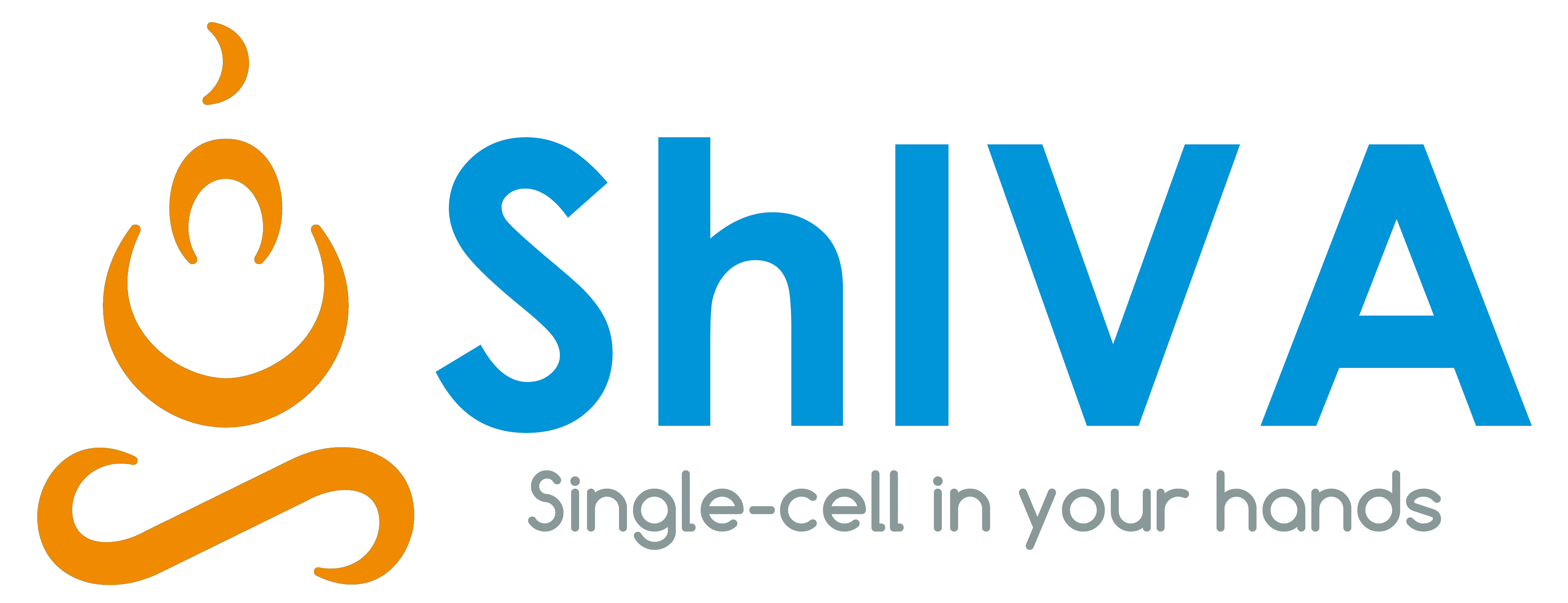Tech Transfer
Laureates
Tech Transfer Laureates
One of the main objectives of the CENTURI Tech Transfer Platform is to promote the development of innovative experimental set-ups of general interest to the scientific community of the Turing Center. In this context, CENTURI organized in 2018 and in 2020 two calls in order to identify projects capable to provide CENTURI scientists with innovative and easy to use systems and to foster industrial partnerships. After a thorough evaluation process, five projects were laureate of the Tech Transfer and Development calls:
4POLAR Imaging Method Software
The 4POLAR is a fluorescence microscopy imaging method that determines the organization of molecules in a 2D plane of sample. For this to happen, the fluorescence emission from the sample is projected along four different linear polarization angles of light (0, 45, 90 and 135 degree polarization) and an image is recorded for each direction. The orientation at each particular pixel of the image is then reported with three angles that indicate planar orientation, wobbling and off plane orientation. The goal of this project is to develop the 4POLAR method as a plugin for the ImageJ (Fiji) platform.
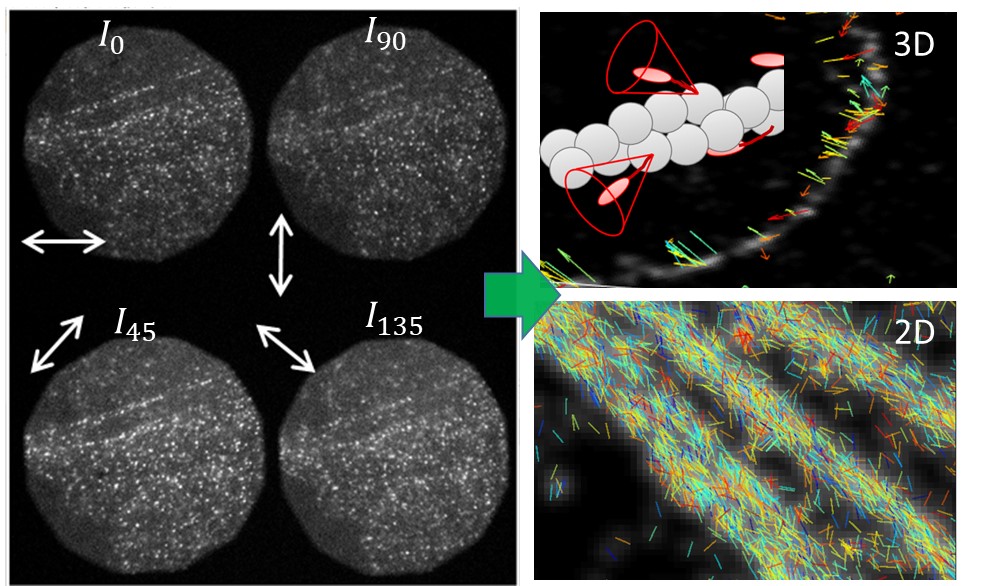
CENTURIM
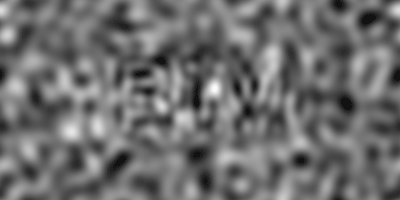
The CENTURIM project aims to develop an original instrumentation (RIM: Random illumination Microscopy) on the Luminy site allowing access to super-resolved fluorescence imaging in biological samples (cells and model systems).
This method coming from the Fresnel Institute and recently validated by the Integrative Biology Center of Toulouse has advantages over structured illumination and Airy scan techniques to access super-resolved fluorescence imaging in scattering media. In particular, very promising results have been obtained in model systems (drosophila) suggesting the broad use of this new imaging modality by the CENTURI community. The project as presented consists in building a RIM microscope and developing the algorithms and codes necessary for the reconstruction of super-resolved and sectioned images. A three-dimensional extension of RIM is also envisaged in collaboration with the Fresnel Institute.
Flexible multimodal Imaging Probe
This Tech Transfer project deals with the development of a flexible probe that can be handheld or inserted into a small animal and that performs multimodal imaging (1P and 2P and 3P fluorescence, fluorescence lifetime imaging, second harmonic generation (SHG), third harmonic generation (THG) and coherent anti-Stokes Raman scattering (CARS).
The proposed project aims at developing an engineer grade version of the multimodal flexible imaging (FIP) probe that has been in development at the Fresnel institute over the last 5 years. The current development has reached TRL4.
Most of the technical steps have been demonstrated and validated but the full device remains a demonstrator that cannot be exported in application labs and imaging platforms, neither can it be operated easily with a user friendly interface.
We have identified several mechanical, optical, electronic and computer programming steps that need to be addressed to bring the FIP technology to the level of a useable device for the CENTURI community. This development project will complete these missing steps to make the multimodal imaging probe accessible to the Centuri community.
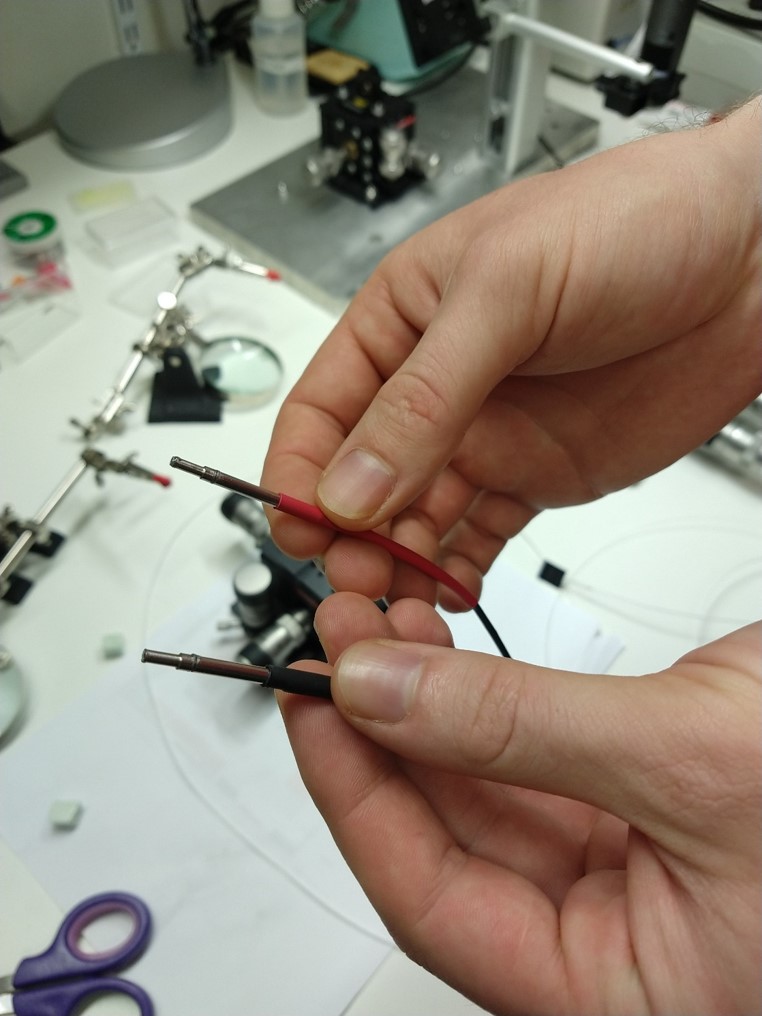
ICOVELL
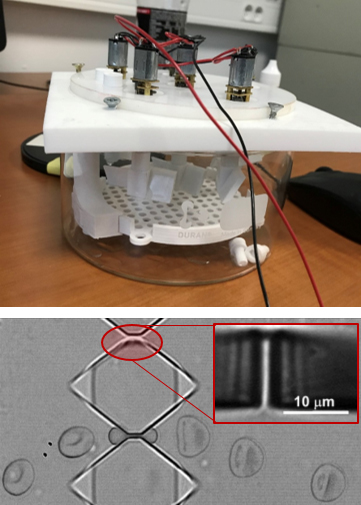
The ICOVELL project aims to build a chemical etching device on the Luminy site enabling to manufacture submicron microfluidic channels with high aspect ratios and with a very low size variability. Such microfluidic devices are engineered for biomimetic studies of the passage of circulating cells such as red blood cells, immune cells or parasites through very narrow passages such as the interendothelial slits in the spleen. poses to develop an in-house prototype instrument targeted for research, development and small/medium scale production enabling chemical etching in a reproducible way.
While the system is still being optimized, a contract has been signed with Idylle to manufacture, package and sell the microfluidic chips. Once finalized, the system will be available to the Aix-Marseille University community.
Shiva
Single-cell technologies have revolutionised biological research and applications. As they continue to evolve with multi-omics and spatial resolution, analysing single-cell datasets is becoming increasingly complex. For biologists lacking expert data analysis resources, the problem is even more crucial, even for the simplest single-cell transcriptomics datasets. We propose ShIVA, an interface for the analysis of single-cell RNA-seq and CITE-seq data specifically dedicated to biologists. Intuitive, iterative and documented by video tutorials, ShIVA allows biologists to follow a robust and reproducible analysis process, mostly based on the Seurat v4 R package, to fully explore and quantify their dataset, to produce useful figures and tables and to export their work to allow more complex analyses performed by experts.
- Complete video tutorials are available on YouTube: https://www.youtube.com/channel/UCJJ3Svi8AY6XGx4Y9r9G3Iw.
- Code and documentation are available from the GitHub repository: https://github.com/CIML-bioinformatic/ShIVA.
- Docker image is available on DockerHub: https://hub.docker.com/r/cb2m/shiva.
